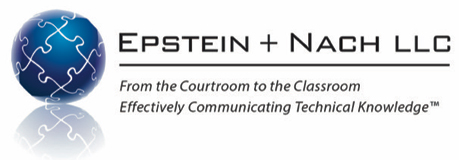Epstein + Nach LLC, a financial reporting consulting firm based in Chicago, is pleased to publish an in-depth white paper on Accounting for Leases under the New FASB Standard. As financial reporting entities and other businesses across the U.S. work to understand the scope and extent of changes to lease accounting, this white paper helps to clarify key facts about the new standard.
The proper accounting for lease arrangements, both by lessees and by lessors, has been one of the more contentious areas of financial reporting theory for the past six decades. A disproportionate fraction of extant accounting guidance, both in the U.S. and also in many other jurisdictions, has been devoted to this topic, while standard-setters were slowly moving toward more universal capitalization of the property usage rights inherent in all leases, without previously actually having reached that seemingly obvious destination. With the recent issuance of Accounting Standards Update (ASU)2016-2 by the FASB (and the similar, but not identical, IFRS 16 by the FASB’s international standard-setting brother, IASB), this long-running debate comes to a definitive conclusion
The new U.S. GAAP standard continues to differentiate between what have historically been referred to as “capital” or “finance” leases, on the one hand, and operating leases, on the other.
A lease –that is, a contractual arrangement conveying the right to control the use of an asset –will be deemed a finance lease if any one of five criteria are met. Leases not meeting any of the five criteria will be deemed operating in nature.
The new rules on accounting for leases under ASU 2016-2 are effective for fiscal years beginning after December 15, 2018 for public business entities that file financial statements with the U.S. Securities and Exchange Commission (SEC). For all other entities, the new requirements are effective for fiscal years beginning after December 15, 2019. Early application of the new requirements is permitted for all entities.
In general, the new requirements are not anticipated to increase risk of accounting fraud beyond what already exists, once the rules have been understood and fully implemented.
During the learning curve phase, risk of both error and fraud will be increased. On the other hand, the risk of accounting fraud is always a concern, and auditors continue to struggle with public perceptions regarding their obligations to detect such occurrences. The new lease standard will just add to the need to continually refine and improve auditing techniques.
Click on the link to read the full white paper on Accounting for Leases under the New FASB Standard.
Epstein + Nach LLC is available to provide training and consultation on adoption of the new lease accounting rules.
About Epstein + Nach LLC
Epstein + Nach LLC is an international financial reporting consulting firm concentrating in forensic accounting, litigation consulting and expert testimony, technical consultations, engagement quality control review (EQCR), internal inspections, and training for accountants and auditors.
 Dr. Barry Jay Epstein, CPA, CFF, is a widely-published international accounting and auditing expert in U.S. Generally Accepted Accounting Principles, International Financial Reporting Standards, and Generally Accepted Auditing Standards. He authored the 3,000-page reference, The Handbook of Accounting and Auditing, now published by Thomson Reuters, from 1988 through 2013. Dr. Epstein also served as the lead author of 26 annual editions of Wiley GAAP (1985-2010), and 14 annual editions of Wiley IFRS (1997-2010), both published by John Wiley & Sons.
Dr. Barry Jay Epstein, CPA, CFF, is a widely-published international accounting and auditing expert in U.S. Generally Accepted Accounting Principles, International Financial Reporting Standards, and Generally Accepted Auditing Standards. He authored the 3,000-page reference, The Handbook of Accounting and Auditing, now published by Thomson Reuters, from 1988 through 2013. Dr. Epstein also served as the lead author of 26 annual editions of Wiley GAAP (1985-2010), and 14 annual editions of Wiley IFRS (1997-2010), both published by John Wiley & Sons.
Additional white papers by Dr. Epstein are available on the publications page at https://www.epsteinnach.com and include the following:
- Revenue Recognition: Fraud and Financial Reporting Risk
- Auditor Liability and Professional Skepticism
- Non-GAAP Measures of Performance and SEC Regulation G
 Mr. Ralph Nach, CPA, is the author, instructional designer, and facilitator of the popular annual Accounting and Auditing Clinic™ continuing professional education program. He has served as author, co-author, contributing author, or technical editor of a number of widely-utilized technical reference works, including PPC’s Interactive Disclosure Library, PPC/Thomson Reuters, 2011; PPC’s Guide to Preparing Financial Statements, PPC/Thomson Reuters, 2010; Wiley GAAP (2001–2010), John Wiley & Sons; and The Handbook of Accounting and Auditing, Warren, Gorham & Lamont, 1999.
Mr. Ralph Nach, CPA, is the author, instructional designer, and facilitator of the popular annual Accounting and Auditing Clinic™ continuing professional education program. He has served as author, co-author, contributing author, or technical editor of a number of widely-utilized technical reference works, including PPC’s Interactive Disclosure Library, PPC/Thomson Reuters, 2011; PPC’s Guide to Preparing Financial Statements, PPC/Thomson Reuters, 2010; Wiley GAAP (2001–2010), John Wiley & Sons; and The Handbook of Accounting and Auditing, Warren, Gorham & Lamont, 1999.
Epstein + Nach LLC is based in Chicago, Illinois. More information is available at https://www.epsteinnach.com or 312-464-3520.
